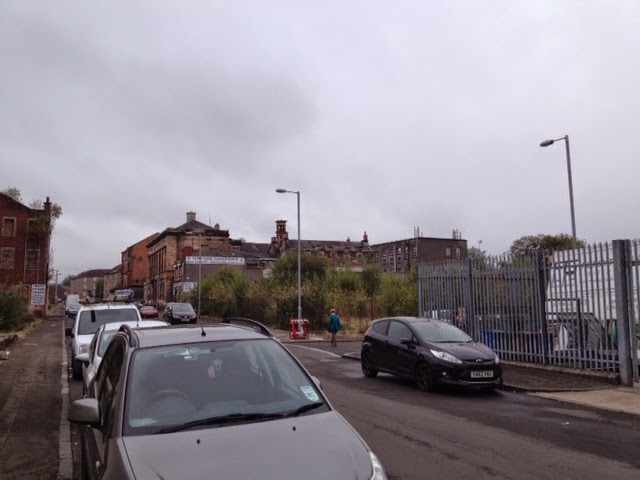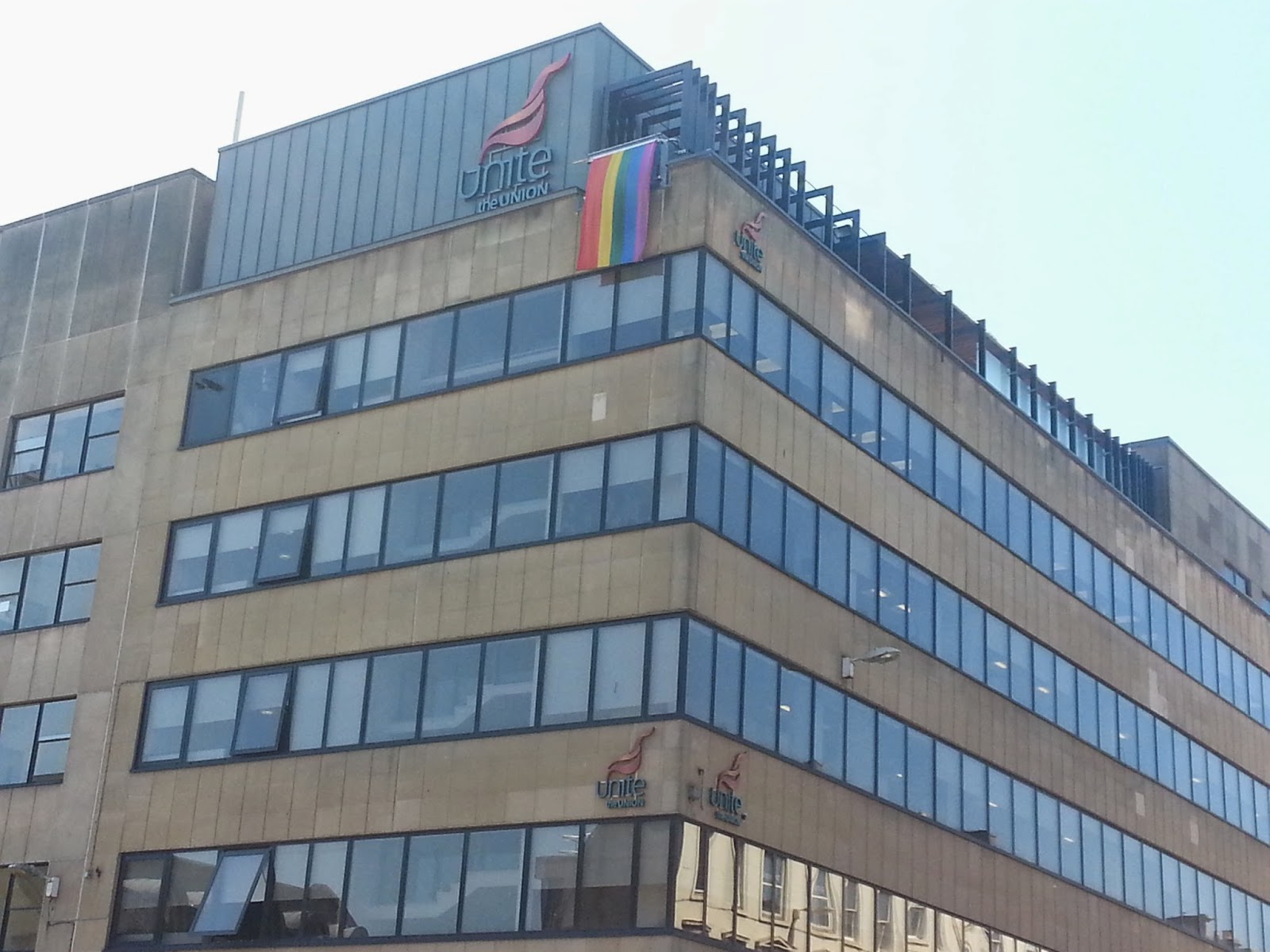After two years, during which the
independence referendum has been the all consuming context for political and
economic decision making in Scotland, the people have spoken.
While the result was a decisive vote for
Scotland to remain in the UK, with 45% voting YES, support for an independent
Scotland is now at an all time high.
In the weeks ahead the vote will be the
subject of much analysis. From the information currently available it would
appear that, in general terms, by large majorities the young voted YES* and the
elderly voted NO; the poor voted YES and the rich NO (the three local authority
areas which voted YES are the three with the lowest employment rates in
Scotland); a substantial number of ‘traditional’ Labour supporters voted YES (as
did a fair number of Labour activists); and while the votes of union members
may well have been fairly evenly split, in all likelihood, taken together, a
majority of current and potential union members voted YES. All of this has
considerable implications for the trade union and labour movement across the
UK. That said it is important to avoid reaching kneejerk conclusions based on
such generalisations.
The one thing that can be said with
complete certainty is that the Referendum was a triumph for democracy.
The phenomenal turnout came on the back of months of discussion and debate in
workplaces, in communities and within families. There was a thirst for
information and engagement the like of which I have not previously witness.
I am immensely proud of the role the STUC
played through our ‘A Just Scotland’ initiative in responding to that demand.
The binary way in much of the media
reported the Referendum meant that, by deciding not to promote a YES or NO
position, the contribution made by the STUC and by affiliates representing the
majority of union members, received marginal coverage, particularly in the
latter part of the campaign.
However, I know that the STUC’s
contribution was hugely valued by unions and their members and was commended by
a range of serious commentators for its balance and the rigour of its analysis.
A quick look at our three ’A Just Scotland’ papers will easily reveal how accurate
we were from the outset in highlighting the critical issues: the lack of
credibility of the Scottish Government’s position on currency; the need for the
unionist parties to address the demand for further Devolution and commit to
retaining the Barnett formula; and the central importance of fairness and
social justice to a large swathe of the electorate. All were defining
issues.
We also played our part in igniting the
vast civic movement for real and progressive change that has grown in Scotland
in the last two years.
More trade unionists and their families
registered and turned out to vote than ever before. Many of those voting, some
for the first time, and on both sides, voted for the constitutional settlement
they felt would create a fairer and more just Scotland. Our politicians must
pay heed.
They must also pay heed to the clear demand
for significant new powers for the Scottish Parliament and for more direct
engagement with people and communities over the decisions which affect their
lives, including within the workplace.
It is essential that the forthcoming
discussions on further powers are not left to the politicians alone and deliver
a substantial and meaningful package. The voice of civil society, so important
in the creation of the Scottish Parliament, must be heard. The STUC and others
must be at the table.
Unfortunately, the signs are ominous. The
appointment of an unelected politician to lead the process is hardly a sign of
inclusiveness or respect for democratic participation. While Scots are clearly
impatient for change, the timetable which Gordon Brown invented and over which
there now appears to be less consensus than we were led to believe, is hardly
conducive to intensive civil and community involvement. Furthermore, the package of proposals, from
the little detail we know of it, and the conditions on Scottish representation
at Westminster that some clearly wish to attach, are unlikely to satisfy.
The motion lodged in the House of Commons
calls for consultation with the Scottish people on the proposals of all three
UK parties. Are we simply to be handed
down minimalist proposals developed in a pre-referendum context which we can
either take or leave?
The STUC published it views on enhanced
devolution prior to the Referendum. It would be odd if we did not recognise
that 45% of the public voted for all of Westminster’s powers to transfer to the
Scottish Parliament and reconsider our position.
Constitutional change is about powers but
it is also about purpose. For us and for a vast number of those who voted YES
and NO, that purpose is a fairer more socially just Scotland. To date, the focus
on further devolution has been on fiscal and welfare powers. However, the
important levers are those over wages and the labour market. It would,
therefore, be appropriate for us to look again at the case, for example, for
the devolution of powers over employment and trade union rights, including
union recognition and collective bargaining and other forms of workplace
democracy, and over the minimum wage.
The constitutional debate in Scotland can
no longer be held in isolation from a debate about de-centralisation across and
within the UK as a whole, or crucially within our own movement. There is much
to be won for working people through union leadership of the debate on enhanced
regional government in England and further devolution in Wales and Northern
Ireland.
The structure of the trade union movement including
the arrangements of our trade union centres must reflect the post-referendum
reality. We need an early and mature debate about the relationship between
unions and the trade union centres in all jurisdictions of the UK, a debate
which arguably should have taken place well before now.
On the 15 October the STUC will be hosting
a major conference to discuss our movement’s policy priorities in the light of
Thursday’s result. On the Saturday following, 18 October, we invite all of
those who want a fairer Scotland and a Scottish Parliament with the power to
deliver it to join us in marching to a rally in George Square in Glasgow.
We must hold our politicians to the pledges
they made and tell them loud and clear - the time for a Just Scotland is now.
Grahame Smith
General Secretary STUC
*At the time of writing the available evidence used was the Ashcroft poll however a subsequent YouGov poll presented a different picture. Taken together the available evidence suggests that the 16-24 age group was fairly evenly split whereas the 24+ were more likely to vote 'yes'. The 65+ age group appears in both polls to have strongly favoured 'no'. This substantiates our view that trade union members were at least as likely to vote yes as no, but qualifies our view that future members were more likely to vote yes.
*At the time of writing the available evidence used was the Ashcroft poll however a subsequent YouGov poll presented a different picture. Taken together the available evidence suggests that the 16-24 age group was fairly evenly split whereas the 24+ were more likely to vote 'yes'. The 65+ age group appears in both polls to have strongly favoured 'no'. This substantiates our view that trade union members were at least as likely to vote yes as no, but qualifies our view that future members were more likely to vote yes.














.jpg)

